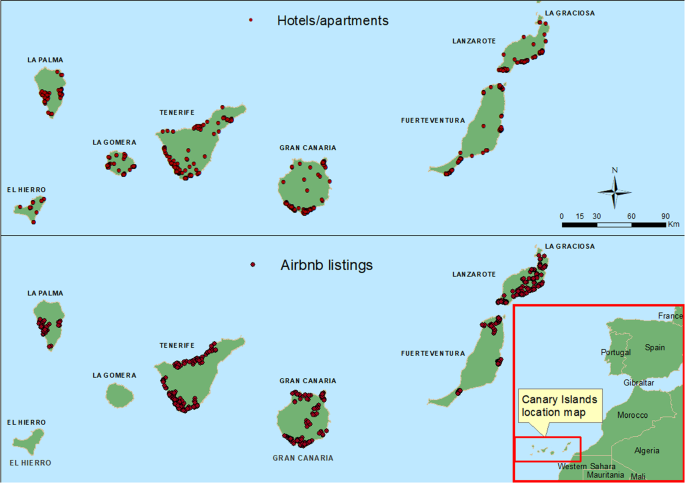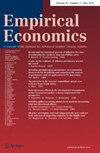Is peer-to-peer demand cointegrated at the listing level?
IF 1.9
4区 经济学
Q2 ECONOMICS
引用次数: 0
Abstract
Abstract In this paper, we analyse the long-run equilibrium demand of the peer-to-peer sharing economy. Our panel data demand model relates occupancy rates to relative prices of Airbnb and HomeAway listings, prices of competitors (hotels and apartments) and a proxy for income of tourists visiting the Canary Islands (Spain). We use a fractional heterogeneous panel data model which allows for a more general persistence and cointegration relationship and incorporates individual and interactive fixed effects. We find some evidence for (fractional) cointegration in P2P at the listing level. Regarding elasticities, classic cointegration methods give larger estimates for individual slopes and mean group coefficients than the fractional integrated heterogeneous model. Finally, own-price elasticities are inelastic, and the cross-price elasticity indicates that P2P listings and hotels are substitute goods. Income elasticity is lower than 1 and is not statistically significant, indicating that the demand for tourism in the Canary Islands is not sensitive to the economic conditions in the origin countries.

点对点需求在列表层面上是协整的吗?
摘要本文分析了点对点共享经济的长期均衡需求。我们的面板数据需求模型将入住率与Airbnb和HomeAway房源的相对价格、竞争对手(酒店和公寓)的价格以及访问加那利群岛(西班牙)的游客的收入相关联。我们使用分数异构面板数据模型,该模型允许更一般的持久性和协整关系,并包含个人和交互式固定效应。我们发现一些证据(分数)协整在P2P在上市水平。关于弹性,经典的协整方法给出了比分数积分异质模型更大的单个斜率和平均组系数估计。最后,自有价格弹性是非弹性的,交叉价格弹性表明P2P房源和酒店是替代商品。收入弹性小于1,没有统计学意义,说明加那利群岛的旅游需求对来源国的经济状况不敏感。
本文章由计算机程序翻译,如有差异,请以英文原文为准。
求助全文
约1分钟内获得全文
求助全文
来源期刊

Empirical Economics
Multiple-
CiteScore
4.40
自引率
0.00%
发文量
157
期刊介绍:
Empirical Economics publishes high quality papers using econometric or statistical methods to fill the gap between economic theory and observed data. Papers explore such topics as estimation of established relationships between economic variables, testing of hypotheses derived from economic theory, treatment effect estimation, policy evaluation, simulation, forecasting, as well as econometric methods and measurement. Empirical Economics emphasizes the replicability of empirical results. Replication studies of important results in the literature - both positive and negative results - may be published as short papers in Empirical Economics. Authors of all accepted papers and replications are required to submit all data and codes prior to publication (for more details, see: Instructions for Authors).The journal follows a single blind review procedure. In order to ensure the high quality of the journal and an efficient editorial process, a substantial number of submissions that have very poor chances of receiving positive reviews are routinely rejected without sending the papers for review.Officially cited as: Empir Econ
 求助内容:
求助内容: 应助结果提醒方式:
应助结果提醒方式:


